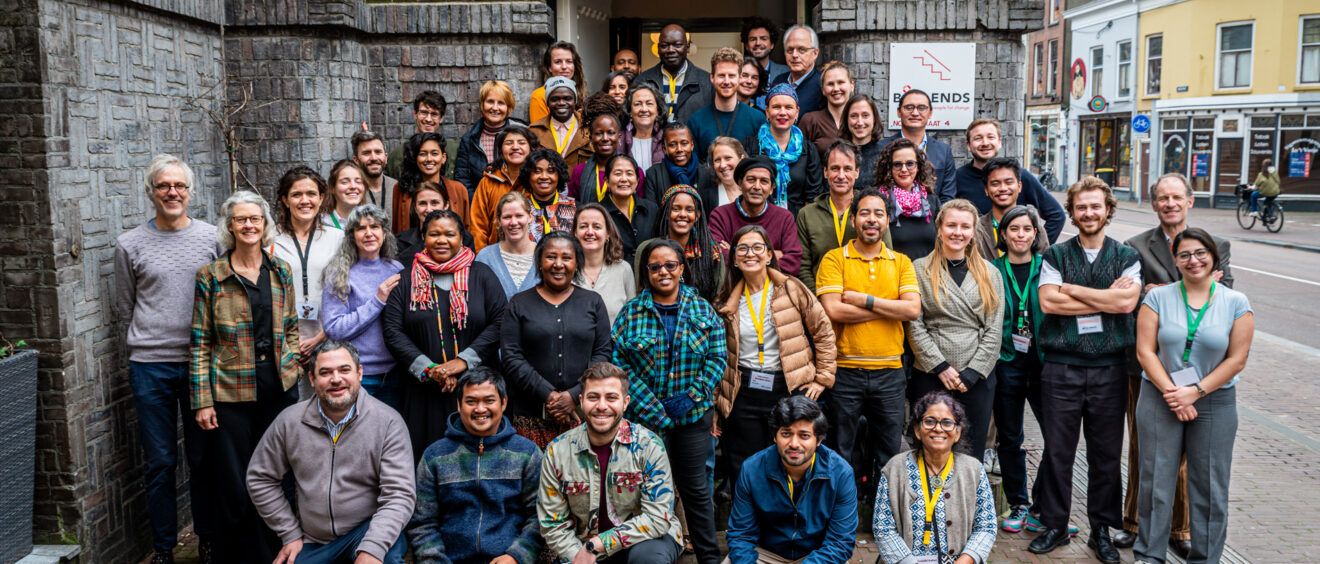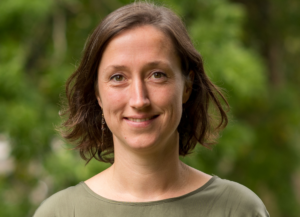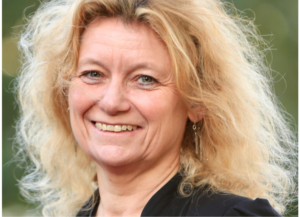
Introduction
A word from our Executive Director and Supervisory Board Chair
Civil society organisations are the eyes, the ears and the conscience of societies. They are the foundation of a healthy democracy. They address the needs of their communities. They develop and propose innovative solutions. They speak out against societal problems, and hold governments and companies to account. And everywhere around the world, from the Philippines to Nicaragua, from the United States to the Netherlands, civil society – as such – is under pressure.
Both ENDS and partner organisations worldwide faced an extremely challenging context in 2024. Authoritarianism is on the rise. Governments are reneging on their commitments to multilateralism. Here in the Netherlands, under the short-sighted claim of pursuing ‘our own interest’, the Dutch government announced massive cuts in funding for international cooperation, abandoning its long-term role as a world champion of civil society as the cornerstone of democracy and rule of law. More than ever before, in 2024 we found ourselves fighting to preserve hard-won progress on urgent issues like action on climate change, deforestation, corporate accountability and gender equality.
The difficult context underscores the importance of our core strategy: to connect people and voices, across the Netherlands and the world. Together, our voices are stronger. We have learned from partners operating in contexts of decreased civic space. Together we are committed more than ever to bring voices and forces together to hold the line, speak out for justice and solidarity and amplify locally-led solutions. For instance, in response to plans for drastic cuts in international development cooperation, Both ENDS and our allies mobilised partners to send a personal postcard to Dutch decision-makers. The postcards increased awareness on the crucial work of partner organisations worldwide, and the importance of maintaining the Dutch government’s decades-long commitment to development cooperation.
SOLIDARITY AND SPACE FOR CARE CONTRIBUTE TO PERSEVERANCE
In the last few years, we have learned a lot from partners, including about their strategies for sustaining what are often very difficult, long-term struggles for environmental and social justice. Many communities are defending their human rights and fighting to protect ecosystems that are threatened by massive infrastructure or fossil fuel projects. They’re often up against very powerful actors, including international financial institutions, multinational corporations and authoritarian regimes.
Partners have told us time and again that international solidarity support and holding our own (public) institutions to account is a vital strategy for ensuring they can persevere in these profoundly unfair fights. In March, partners from Mozambique, Indonesia and the Philippines joined us in the Hague to meet with Dutch policymakers, including members of Parliament, to discuss human rights violations and environmental destruction in international dredging projects, especially those insured by the Dutch state through its Export Credit Agency (ECA), Atradius DSB. During their visit, we launched Dredging destruction, a new report co-authored by Both ENDS with six partners. The report demonstrates how Atradius DSB has repeatedly failed to prevent and mitigate the adverse impacts of the Dutch dredging sector, and underscores the urgent need to align Dutch policy with international obligations on responsible business conduct, and the protection and promotion of human rights, biodiversity and sustainable development. For instance in Mozambique, where Atradius DSB supports dredging activities in the Cabo Delgado LNG project, and where forced displacement of hundreds of families took place, marine and coastal ecosystems were severely impacted, and where gas explorations fuelled a violent conflict. While we’re still miles from where we need to be, our collective efforts have made an impact. In 2024, we managed to increase public and government scrutiny of Atradius DSB’s policies. It was a good sign that Atradius DSB was one of the few financiers in the Mozambican LNG project to hold off a reconfirmation of their support. A small, but important step.
We have also learned from partners about the importance of creating space and time for healing and care. In the face of difficult struggles, restorative activities that foster collective and individual well-being are crucial. In Brazil, women environmental human rights defenders have been fighting for more than a decade to protect their communities and territory from destructive dredging around the Port of Suape. With support from Both ENDS, the women – many of whom have lost their fishing grounds and livelihoods – have set up community kitchens. The kitchens provide a safe space for the women to share their personal struggles, support each other, and engage in collective care activities, including meetings to exchange experiences, leisure activities and cultural exchange.
Like the women in Brazil, many partners are at the same time resisting harm and fostering healing. Even in the most difficult of circumstances, they are restoring themselves and the fragile ecosystems on which they depend. In the Sahel, against a backdrop of climate change, violence and instability, communities are achieving remarkable results by nurturing regeneration of native flora. They are playing a role that civil society organisations are uniquely suited to perform: effectively demonstrating that another future is possible and showing how we can get there. We are delighted that the ‘Communities Regreen the Sahel’ programme attracted new support in 2024. Together with partners, we are excited to build on the groundwork laid and pursue new work aimed at fostering resilient food systems.
A ROBUST AND EFFECTIVE ORGANISATION
The year 2024 marked a successful transition to a new governance system and new leadership of Both ENDS. To better reflect our actual practice, we formally transitioned to a Supervisory Board structure. Moreover, not only did we take up our new roles as Chair of the Supervisory Board (Leida) and Executive Director (Karin), many Both ENDS colleagues assumed new leadership roles as well. As part of our self-organised structure, every few years staff members have the opportunity to take up leadership of a team. The approach mirrors Both ENDS’s vision of the world, putting our commitment to ‘sharing power’ into practice across the organisation. Our aim is to stimulate ownership and personal growth, and ensure that decision-making power is not confined to a limited number of individuals, but rather shared across the organisation. We are convinced that Both ENDS is a more robust and effective organisation as a result.
Building trust and strong relationships. Listening and learning together. Collaborating in relationships of equality. This is our recipe for success, in our work with partners, as well as allies and colleagues. It is also the recipe we used to develop a new five-year strategy, a highly participatory and lively process. First, we gathered input from partners, staff and diverse experts in the field, who shared their perspectives about the current and future context. Then in March, we were delighted to convene a diverse group of partner representatives from around the globe for an intense three-day strategy meeting at the Both ENDS office in Utrecht. In session after session, Both ENDS staff went into listening-mode, gathering the insights and input of partners on a whole range of strategic questions.
TRUST AND HOPE
What we heard during the partner meeting confirmed the importance of the core of our work: to act in solidarity with partners, and support their efforts and struggles for environmental justice. In response to the needs of partners and the increasingly difficult context we face, the new strategy builds on what we are already doing, while sharpening our focus and deepening our approach. Going forward, we aim to ensure that the global environmental justice movement is strong and connected; that environmentally-just practices and processes are widely recognised and more common; and that environmental injustice is countered, and harm is addressed and healed.
In the strategy meeting, we also heard from partners that the way we support them is crucial. Partners affirmed the value of Both ENDS’s commitment to relationships based on integrity, equality and trust, where we recognise each other’s expertise, actively learn together and cooperate toward shared goals. In our new strategy, ‘Examination of Power’ will be a continual process to ensure that we stay attentive to our power and use it well.
On the final evening of the March strategy meeting, we threw open the office doors and celebrated our collective work with a festive, full room of partners and special guests. Despite the many challenges ahead, despite increasing repression and injustice everywhere around the world, we aim to preserve the hopeful mood of that wonderful evening. We are strongly committed to and confident about our strategy to strengthen civil society as the driving force to address the current crises and guide environmental justice. We are succeeding in garnering the support of new donors, including philanthropic foundations (Fondation Chanel and re:arc institute) and bilateral donors (the Dutch Enterprise Agency, UK FCDO and Irish Aid). As we write this, we already see the counterpower growing. From Kenya to Canada, Argentina to the Netherlands, people are taking to the streets to safeguard democracy, demand environmental and social justice, and insist on evidence-based policymaking. We have an uphill battle ahead. But arm in arm with partners and allies worldwide, we are ready for the journey.
Karin van Boxtel, Executive Director
Leida Rijnhout, Chair of the Supervisory Board

Karin van Boxtel, Executive Director

Leida Rijnhout, Chair of the Supervisory Board
